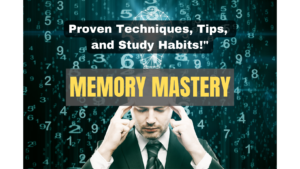Hey there, achievers! Welcome back to our channel, where we explore the best strategies and tools for personal and professional success. Today, we’re diving deep into Stephen Covey’s iconic book, “The 7 Habits of Highly Effective People.” We’ll be breaking down seven key lessons that you can apply to your own life, so be sure to stay tuned for some game-changing insights! Now, let’s get started!
Before we jump into the lessons, here’s an interesting fact for you: Did you know that over 30 million copies of “The 7 Habits of Highly Effective People” have been sold worldwide? This book has become a cornerstone for personal development, and for good reason! So, if you want to join the ranks of highly effective people, keep watching as we reveal these life-changing habits.
LESSON 1: BE PROACTIVE
Our first lesson is all about being proactive. Highly effective people take responsibility for their lives and don’t let circumstances dictate their actions. They understand that they have the power to choose how they respond to any situation.
The foundation of proactivity is understanding that you are in control of your reactions. By recognizing that you have the power to choose your response to any situation, you can take ownership of your life and make conscious decisions that align with your goals and values.
To be proactive, you need to focus on your Circle of Influence – the things you can actually control – and not waste energy on your Circle of Concern, which consists of things outside of your control. By doing this, you’ll be more effective in achieving your desired outcomes.
Proactivity also means anticipating potential problems and taking preventive actions. By being prepared and planning ahead, you can avoid many obstacles and setbacks that can hinder your progress.
Remember, being proactive is a mindset. Start by taking responsibility for your actions and emotions, and watch as you become more resilient and adaptable in the face of challenges.
LESSON 2: BEGIN WITH THE END IN MIND
The second lesson we’re going to explore is the importance of beginning with the end in mind. To achieve success, you must have a clear vision of your destination and a plan to get there.
Covey emphasizes the importance of developing a personal mission statement to guide your actions and decisions. This statement should outline your values, goals, and the legacy you want to leave behind.
By keeping the end in mind, you’re better able to align your daily activities with your long-term objectives. This ensures that you’re always moving in the right direction and not getting sidetracked by distractions or short-term temptations.
Creating a vision for your life will also help you prioritize your tasks and make more effective decisions. When you know what’s truly important, you can easily determine which tasks are essential and which can be delegated or eliminated.
Remember, your future is created by the choices you make today. By beginning with the end in mind, you can set yourself up for long-term success and fulfillment.
LESSON 3: PUT FIRST THINGS FIRST
The third lesson is all about prioritization – putting first things first. Highly effective people understand the importance of focusing on their most important tasks and not getting bogged down by less significant matters.
Covey introduces the Time Management Matrix, which is divided into four quadrants based on the level of urgency and importance of tasks. Quadrant I contains urgent and important tasks, Quadrant II contains non-urgent but important tasks, Quadrant III contains urgent but unimportant tasks, and Quadrant IV contains non-urgent and unimportant tasks. Highly effective people focus their efforts on Quadrant II tasks – those that are important but not urgent.
Focusing on Quadrant II tasks allows you to invest in long-term goals and personal development. This might include building relationships, planning, and self-improvement. By prioritizing these activities, you’ll be better prepared for the future and less likely to become overwhelmed by urgent crises.
To put first things first, start by identifying your most important tasks and scheduling dedicated time for them. Avoid the trap of getting caught up in the “busy-ness” of life, and learn to say no to less important tasks and distractions.
Remember, prioritization is key to effectiveness. By putting first things first, you’ll be better equipped to achieve your goals and create lasting success.
LESSON 4: THINK WIN-WIN
The fourth lesson from “The 7 Habits of Highly Effective People” is all about adopting a win-win mindset. This means striving for mutually beneficial outcomes in all your interactions, rather than competing or compromising.
A win-win approach is based on the belief that there’s enough success to go around for everyone. This mindset fosters cooperation, collaboration, and trust in relationships, which ultimately leads to better outcomes for all parties involved.
To develop a win-win mentality, start by practicing empathic listening. This means truly understanding the needs and desires of others, and seeking solutions that address both your own and their concerns.
Additionally, be willing to be open and transparent about your own needs and expectations. This honesty allows for more effective negotiation and helps to establish trust between parties.
Remember, a win-win approach benefits everyone involved. By adopting this mindset, you’ll create stronger relationships and more successful outcomes in your personal and professional life.
LESSON 5: SEEK FIRST TO UNDERSTAND, THEN TO BE UNDERSTOOD
Our fifth lesson is about the importance of effective communication. Covey emphasizes the need to seek first to understand, then to be understood. This means prioritizing active listening and empathy over merely expressing your own thoughts and opinions.
The key to understanding others is empathic listening, which involves not only hearing the words spoken, but also understanding the emotions and feelings behind them. This requires setting aside your own assumptions and judgments and truly trying to see the situation from the other person’s perspective.
Once you’ve gained a deep understanding of the other person’s perspective, you’ll be better equipped to communicate your own thoughts and feelings in a way that resonates with them. By doing so, you’ll foster trust, respect, and open communication.
To practice empathic listening, focus on giving the speaker your full attention, and avoid interrupting or interjecting your own opinions. Ask open-ended questions to encourage further elaboration and demonstrate your genuine interest in understanding their viewpoint.
Remember, effective communication is a two-way street. By seeking first to understand, then to be understood, you’ll foster stronger connections and create more meaningful conversations.
The sixth lesson from “The 7 Habits of Highly Effective People” is all about synergy. Covey explains that when people work together effectively, the result is greater than the sum of its parts.
Para 1: Synergy is the idea that the whole is greater than the sum of its parts. By working together and combining the unique strengths and perspectives of each individual, teams can achieve results that would be impossible for any single person to accomplish alone.
To create synergy, focus on fostering a collaborative environment where everyone’s ideas and contributions are valued. Encourage open communication, active listening, and trust among team members.
Embrace diversity and recognize that differing perspectives can lead to innovative solutions and better decision-making. By leveraging the unique skills and strengths of each individual, you can create a powerful team dynamic that leads to greater success.
Remember, synergy is the key to unlocking the true potential of a group. By fostering collaboration and embracing the power of diverse perspectives, you can achieve far more than you could on your own.
LESSON 7: SHARPEN THE SAW
Our final lesson from “The 7 Habits of Highly Effective People” is the importance of self-renewal or, as Covey calls it, “sharpening the saw.” This means regularly investing in yourself to ensure your continued growth and effectiveness.
PCovey identifies four dimensions of self-renewal: physical, mental, emotional, and spiritual. By nurturing each of these areas, you can maintain a balanced and healthy lifestyle that supports your overall effectiveness.
Physical renewal involves taking care of your body through regular exercise, proper nutrition, and sufficient rest. Mental renewal involves stimulating your mind through continuous learning, reading, and engaging in new experiences. Emotional renewal involves building and maintaining strong relationships, practicing empathy, and developing a strong support network. Spiritual renewal involves connecting with your inner values, finding meaning and purpose in your life, and practicing mindfulness and meditation.
To sharpen the saw, regularly assess your needs in each of these areas and make a conscious effort to invest in your personal growth and well-being. By doing so, you’ll ensure that you have the energy, focus, and resilience to tackle the challenges that come your way.
Remember, self-renewal is essential for sustained success. By sharpening the saw, you’ll maintain your effectiveness and continue to grow as an individual.
And there you have it, the seven key lessons from Stephen Covey’s “The 7 Habits of Highly Effective People.” By applying these habits to your life, you’ll be well on your way to achieving your goals and creating lasting success. Now it’s your turn to take action! Start implementing these habits one by one, and watch as your life transforms for the better.
If you enjoyed this video, please give it a thumbs up and subscribe to our channel for more personal and professional development content. And don’t forget to share your thoughts on these habits in the comments below. Thanks for watching, and remember: success is just a few habits away!


